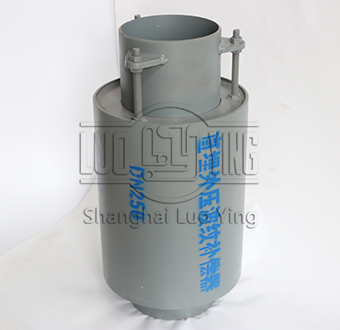Sleeve Metal Compensator Fatigue Resistance.
Aug-23-02
Sleeve Metal Compensator Fatigue Resistance.Sleeve metal compensators, also known as metal expansion joints or bellows, are widely used in piping systems to absorb thermal expansion, vibration, noise, and misalignment. These compensators are specifically designed to provide flexibility and stress relief in applications where traditional expansion joints may not be suitable. One crucial aspect of sleeve metal compensators is their fatigue resistance, which ensures their longevity and reliability in demanding operating conditions. In this article, we will explore the importance of fatigue resistance in sleeve metal compensators.
Fatigue resistance refers to the ability of a material or component to withstand cyclic loading over an extended period without experiencing failure. In the case of sleeve metal compensators, fatigue resistance is essential due to the constant flexing and movement they undergo as a result of thermal expansion and contraction. The compensators must be able to withstand thousands or even millions of cycles without developing cracks or ruptures.
One key feature that contributes to fatigue resistance in sleeve metal compensators is the use of high-quality materials. These compensators are typically made from stainless steel or other alloys that offer excellent strength and fatigue resistance properties. The selection of materials is crucial to ensure the compensators can withstand the unique operating conditions of the specific application.
The design of sleeve metal compensators also plays a significant role in their fatigue resistance. The expansion joint's geometry and construction must be carefully engineered to distribute stresses evenly and minimize stress concentrations. Smooth transitions, proper reinforcement, and adequate wall thickness all contribute to improving its fatigue resistance. Additionally, the use of convolutions or bellows in the compensator design helps to provide flexibility while minimizing stress concentrations, further enhancing fatigue resistance.
Proper installation and support are also vital in ensuring the fatigue resistance of sleeve metal compensators. Improper installation, including excessive forces, misalignment, or inadequate support, can lead to premature fatigue failure. It is crucial to follow the manufacturer's guidelines and best practices when installing compensators to ensure they can perform optimally and withstand cyclic loading for an extended period.

In conclusion, fatigue resistance is a critical consideration when selecting and using sleeve metal compensators. These compensators must be able to withstand cyclic loading and constant movement without developing cracks or ruptures. High-quality materials, proper design, installation, and maintenance all contribute to improving the fatigue resistance of sleeve metal compensators. By ensuring the fatigue resistance of these compensators, piping systems can operate reliably and safely, minimizing downtime and maintenance costs.

